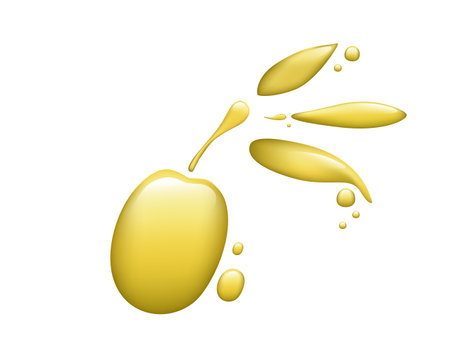1. Understanding the Unique Needs of Afro-Caribbean Hair in the UK
Afro-Caribbean hair is celebrated for its rich texture and versatility, but living in the UK presents a unique set of challenges that require special attention. The British climate is often cool and damp, which can lead to increased dryness and brittleness in curly and coily hair types. Additionally, many areas across the UK have hard water, which contains high levels of minerals such as calcium and magnesium. These minerals can build up on the scalp and hair, making it harder for moisture and nourishing ingredients to penetrate effectively. On top of these environmental factors, cultural practices—such as frequent protective styling or the use of heat—can further impact scalp health. Understanding these challenges is key to choosing scalp serums that not only address moisture retention but also help soothe irritation, support healthy hair growth, and maintain the vibrancy of Afro-Caribbean hair in the UK’s unique environment.
2. What Are Scalp Serums and How Do They Work?
Scalp serums are lightweight, nutrient-rich treatments designed specifically for the skin on your scalp. Unlike heavier oils or creams, serums are formulated to penetrate deeply and deliver active ingredients where they’re needed most. For Afro-Caribbean hair—known for its tight curls and coarser texture—scalp care is essential to maintain healthy growth and prevent common concerns like dryness, flakiness, or irritation.
Key Ingredients in Scalp Serums
| Ingredient | Benefit for Afro-Textured Hair |
|---|---|
| Tea Tree Oil | Soothes itchiness, combats dandruff, and has antibacterial properties |
| Castor Oil | Promotes hair growth and locks in moisture |
| Peppermint Oil | Stimulates blood flow to the scalp, encouraging stronger roots |
| Aloe Vera | Hydrates and calms the scalp, reducing inflammation and dryness |
| Niacinamide (Vitamin B3) | Strengthens the scalp barrier and improves overall scalp health |
How Scalp Serums Benefit Afro-Caribbean Hair in the UK Climate
The UK’s often damp and chilly weather can exacerbate dryness for Afro-textured hair, making a nourishing scalp serum an invaluable part of your routine. These serums help balance oil production, keep the scalp hydrated, and create a healthy environment for strong hair growth—all while being lightweight enough not to weigh down delicate curls.
Quick Tips for Application
- Section your hair: This ensures even distribution and allows the serum to reach the scalp directly.
- Use sparingly: A few drops massaged in with fingertips is usually sufficient.
- Consistency is key: Regular use yields the best results—think of it as skincare for your scalp.
In Summary:
A good scalp serum acts as a foundation for healthy Afro-Caribbean hair by targeting common issues like dryness and irritation. Choosing one with targeted ingredients will help you achieve a balanced, comfortable scalp regardless of what the British weather throws at you.

3. Top Ingredients to Look For in Scalp Serums for Afro-Caribbean Hair
When shopping for scalp serums specifically formulated for Afro-Caribbean hair, it’s crucial to pay attention to the ingredients list. The right blend of powerful, natural ingredients can make all the difference in maintaining a healthy scalp and promoting luscious hair growth—especially given the unique needs of textured hair within the UK climate. Here are some top ingredients UK residents should look out for:
Castor Oil: The Growth Booster
Castor oil is a staple in many Afro-Caribbean households, and for good reason. Rich in ricinoleic acid and omega-6 fatty acids, this deeply moisturising oil helps nourish dry scalps, reduce flakiness, and stimulate hair follicles for thicker, healthier growth. Its anti-inflammatory properties also make it brilliant for soothing irritation, making castor oil-based serums an excellent choice for those prone to dryness or sensitivity caused by cold British winters.
Tea Tree Oil: The Scalp Soother
Tea tree oil is renowned for its natural antiseptic and antimicrobial benefits. When included in scalp serums, it helps combat dandruff, reduce itchiness, and maintain overall scalp cleanliness—a must for anyone navigating the UK’s variable weather. Tea tree oil can gently unclog hair follicles and support a balanced environment for new growth, which is particularly beneficial if you frequently wear protective styles or wigs.
Peppermint Oil: The Invigorating Refresher
Peppermint oil brings a refreshing tingle and cooling sensation to your scalp serum routine. This ingredient stimulates blood circulation at the roots, encouraging stronger and faster hair growth while delivering instant relief from tightness or discomfort often experienced with braids or weaves. Plus, its invigorating scent offers an uplifting boost during your daily self-care rituals.
Supporting Ingredients Worth Noting
Other notable inclusions such as jojoba oil (mimics the scalp’s natural sebum), aloe vera (soothes and hydrates), and rosemary extract (supports thickness) can further enhance your serum’s effectiveness. By focusing on products that feature these hero ingredients, UK residents with Afro-Caribbean hair can address specific scalp concerns—from dryness to dandruff—while keeping their hair resilient, hydrated, and beautifully vibrant all year round.
4. How to Apply Scalp Serum: Step-by-Step Guide
Applying scalp serum correctly is essential for achieving the best results, especially for Afro-Caribbean hair textures common among UK residents. A precise application not only ensures even distribution but also maximises product benefits while protecting delicate curl patterns and the scalp. Here’s a step-by-step guide tailored to your unique hair needs.
Step 1: Sectioning the Hair
Afro-Caribbean hair is often dense and curly, making sectioning a crucial first step. Use a wide-tooth comb or your fingers to gently divide your hair into manageable sections. Four to six sections usually work well; secure each with clips or bands. This method allows you to reach the scalp directly and prevents tangling.
| Hair Length | Recommended Sections |
|---|---|
| Short | 2–4 |
| Medium | 4–6 |
| Long/Thick | 6–8+ |
Step 2: Applying the Serum
Dispense a small amount of scalp serum onto your fingertips or directly onto the scalp using the product’s applicator (dropper or nozzle). Focus on partings within each section, ensuring the serum reaches the roots rather than just sitting on top of the hair. Avoid overloading; a little goes a long way, especially with concentrated formulas.
Pro Tip:
If your serum comes in a dropper bottle, apply drops along each parting line and gently smooth them in with your fingertips.
Step 3: Massage Technique
Once applied, use the pads of your fingers (not nails) to massage the serum into the scalp using gentle, circular motions. Spend about 1–2 minutes per section. This stimulates blood flow, encourages absorption, and promotes healthy hair growth—all vital for Afro-Caribbean hair types prone to dryness and breakage.
Massage Timing Table
| Number of Sections | Total Massage Time (mins) |
|---|---|
| 4 | 5–8 |
| 6+ | 8–12 |
Step 4: Timing & Frequency Tips
The ideal frequency depends on your scalp’s needs and the serum type. For most UK-based Afro-Caribbean residents, applying serum 2–3 times weekly works well, especially during colder months when central heating can dry out both hair and scalp. Night-time application lets active ingredients work overnight—just remember to protect your pillow with a silk scarf or bonnet.
5. Recommended Scalp Serums for UK Residents
If you’re searching for the perfect scalp serum tailored to Afro-Caribbean hair, the UK market offers a thoughtful selection—especially from local and Black-owned brands that understand your unique hair needs. Let’s delve into some of the top-rated options that have won over both professionals and everyday users.
Bouclème Scalp Serum
This London-based, Black-owned brand is celebrated for its naturally derived formulas. Bouclème’s Scalp Serum combines soothing aloe vera, spearmint, and calming witch hazel to refresh itchy or irritated scalps without weighing down curls. Its lightweight consistency makes it ideal for frequent use and is especially loved by those embracing natural textures.
Flora & Curl Scalp Refresh Mist
Another standout in the UK natural hair community, Flora & Curl offers a botanical-rich solution targeting dryness and flakiness. Infused with rose water, tea tree oil, and eucalyptus, this serum not only cools but also invigorates the scalp—perfect for maintaining healthy roots between wash days.
Afrocenchix Soothe Scalp Oil
A true homegrown favourite, Afrocenchix was founded by British women of African descent who struggled to find safe, effective products. Their Soothe Scalp Oil blends organic tea tree and lavender oils to combat dandruff and irritation while leaving no greasy residue. It’s vegan-friendly and formulated specifically for afro-textured hair.
Curlsmith Scalp Stimulating Booster
While not exclusively Black-owned, Curlsmith’s commitment to curly and coily hair types has made them a staple in many UK households. The Scalp Stimulating Booster uses ginger, nettle, and caffeine to boost circulation and promote growth—a great pick-me-up for tired or sluggish scalps during colder British months.
Root2Tip Grow It Long Scalp Serum
Proudly based in the UK and Black-owned, Root2Tip specialises in gentle yet potent solutions for afro hair. Their Grow It Long Serum contains rosemary oil, peppermint, and castor oil to nourish follicles and support thickness. Many users rave about its ability to soothe tender scalps after protective styling like braids or twists.
When selecting a scalp serum in the UK, look out for local expertise and ingredient transparency. Supporting Black-owned businesses not only helps you care for your hair but also uplifts the community—so why not make your next purchase count?
6. Tips for Incorporating Scalp Serums Into Your Hair Care Routine
Find the Right Frequency for Your Scalp
For Afro-Caribbean hair types, maintaining scalp health is key to encouraging strong, vibrant hair growth. When introducing a scalp serum into your routine, start by applying it 2-3 times per week. Observe how your scalp responds: if you have a drier scalp, you may benefit from more frequent use, while oilier scalps might only need weekly applications. The aim is to nourish without overloading the scalp.
Layering With Other Products
Scalp serums can be seamlessly integrated with other products commonly used in Afro-Caribbean hair care routines, such as oils and leave-in conditioners. Apply your chosen serum directly onto a clean scalp before using heavier oils or butters. This allows the active ingredients to penetrate deeply and ensures your scalp receives maximum benefit without build-up. Avoid layering too many products at once—less is often more when it comes to maintaining a healthy scalp environment.
Building a Holistic Scalp Wellness Routine
Scalp wellness goes beyond just product application. Regularly massage the serum into your scalp using gentle, circular motions; this boosts blood circulation and enhances absorption of nutrients. Consider incorporating weekly scalp exfoliation with a gentle brush or scrub to remove dead skin cells and promote an even healthier foundation for your serum. For UK residents dealing with hard water or seasonal changes, adapt your routine as needed—perhaps adding more moisture in winter or clarifying treatments during the summer months.
Consistency Is Key
As with any beauty regimen, consistency delivers the best results. Set aside time each week to focus on your scalp’s needs, and monitor changes so you can tweak your approach if necessary. Remember, healthy Afro-Caribbean hair starts at the roots, so prioritising regular care will pay off in softness, strength, and overall hair vitality.


